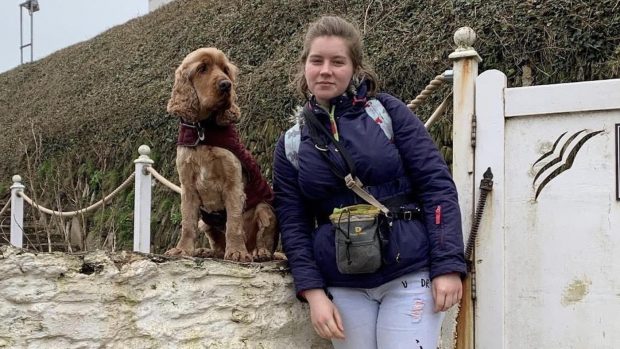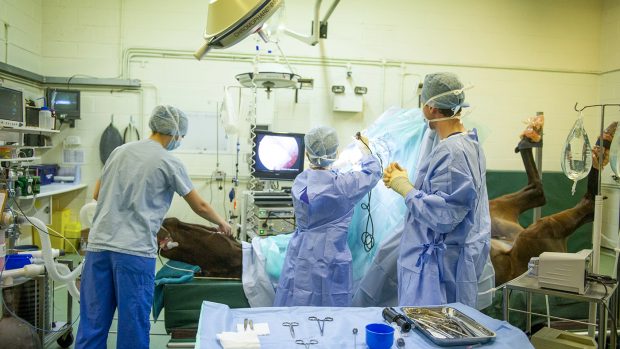Demand for places at vet schools in Britain and Ireland is now so great that students desperate to study veterinary medicine are relocating to countries as far afield as Hungary to get their qualifications.
About one in 10 applicants to study the subject at Glasgow and Edinburgh is successful, even though the number of places for Britain’s six vet schools has risen — in 1998, 426 UK-trained new vets graduated, compared to nearly 500 in 2003.
Millie Steward-Wood, 21, is in her first year studying vet medicine at St Istvan University, Budapest, in Hungary, which runs a five-year degree. The school is accredited by the European Association of Establishments for Veterinary Education and its degree is accepted for registration to the Royal College of Veterinary Surgeons (RCVS).
“I applied to English universities, but didn’t get in,” she said. “I thought I’d reapply next year, but then a vet told me about a girl with straight As who’d done work experience at his practice but failed to get into a British university. She had found her degree course in Hungary on the Internet. I sent my CV and application, then took an entrance exam in Dublin last July with 20 Irish students. Within days St Istvan sent an e-mail saying I’d been accepted.”
Millie, from Oxford, began the course, which mainly takes Scandinavians, plus a growing number of Irish (last year there were 800 applicants for 90 places to study veterinary medicine at University College Dublin) and the occasional Brit, last September. The course was set up in 1992 and tuition fees are £10,560 a year.
“Coming here is probably the best decision I’ve ever made,” she said. “But living in Budapest is an adventure. I can fly home for £45 return, and it’s seven hours door to door. The cost of living is cheaper than in England, but rising.”
The university claims that graduates of the degree, which is taught in English, have an equal chance of employment with graduates in their home countries. A spokesman for the RCVS said that holders of recognised EU qualifications — such as Millie’s course — are entitled to practise here.
“Our membership department has had to cope with a host of new EU accession countries that are now recognised,” he said. “The output of UK graduates has been growing steadily as more university places are created, but the number of places is determined within the higher education system. It’s always been a subject more people have wanted to do than there are places.”
And in Hungary, just like in Britain, it is an increasingly female-dominated subject: in both countries, almost 80% of students are girls, compared to five years ago, when it was about 68% in the UK and 50% on the English-speaking course in Hungary.
|
||
 |
||


 Get up to 19 issues FREE
Get up to 19 issues FREE TO SUBSCRIBE
TO SUBSCRIBE 



